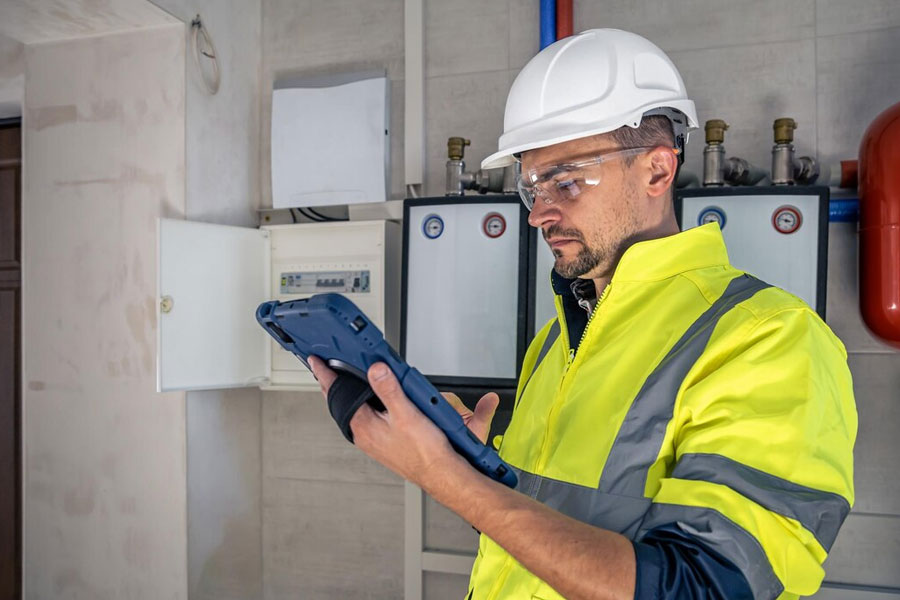Enquire Now
- CALL A PLUMBER
- (925) 478-8073
Enquire Now
 September 15, 2025
September 15, 2025
Protecting your home from water damage starts with the right device. A smart leak detector can spot small problems before they become disasters. In this guide, Magnificent Plumbing & Rooter, having the head office in San Ramon, CA, explains what to look for. Additionally, we also offer free estimates on full-system installs and repairs.
Water damage is common. It also costs a lot to fix. However, a smart leak detector alerts you fast and gives you time to act. Therefore, you can successfully avoid worse damage. A lot of modern systems also shut off water automatically. As a result, this limits loss and lowers repair bills.
There are two types of leak detectors:
Spot sensors sit on the floor and watch only one area. These are made to be placed under a sink, behind a water heater, next to a washing machine, or in any other area. Spot sensors are cost-effective water leak detectors. Moreover, they detect pooling water quickly.
On the other hand, whole-home monitors are attached to your main line. They track pressure and flow. This way, they can spot slow leaks and hidden pipe failures. A smart leak detector that includes shutoff capability can stop the flow immediately. Consequently, these systems add strong protection.
There are many different types of smart leak detectors on the market. You can evaluate the following features and choose the one that matches your home and budget.
Most spot sensors use metal contacts to detect water. When water bridges the contacts, the sensor triggers an alert. Whole-home monitors use pressure and flow sensors. They analyze patterns to find anomalies. For example, continuous small flows at night mean a slow leak. A smart leak detector that combines both methods increases coverage.
You should cover high-risk areas first:
Also, place a sensor by the main shutoff. In addition, install probes in corners where water pools. Remember, a well-planned layout gives the best protection.
A basic spot smart leak detector can cost under $50 per sensor. Whole-home monitors with automatic shutoff are costly. Expect several hundred to over a thousand dollars for full systems and professional installation. Yet, one avoided claim for burst-pipe damage usually pays for the device. Therefore, consider the cost of smart leak detectors as a type of home insurance.

Here are some tips to consider while buying a smart leak detector:
We, at Magnificent Plumbing & Rooter, offer both advice and professional installation. Furthermore, remember that we also provide free estimates.
Spot sensors are easy to set up. Most pair with apps in minutes. However, whole-home systems or shutoff valves need plumbing work. For those, hire a licensed plumber. A poor installation may void warranties. Also, mixers and check valves can complicate shutoff installs. Our San Ramon team handles complex setups safely.
Test sensors monthly. Replace batteries as the app recommends. Clean dust and debris from probes. Also, check app alerts periodically to confirm connectivity. If your system includes an automatic shutoff, test that function per the manufacturer’s instructions. Ultimately, a well-maintained smart leak detector keeps working when you need it.
Look for trusted brands with strong customer support. Consumer testing groups and tech reviews can help. Also, check the warranty length and what it covers. In many cases, a longer warranty reflects confidence in the product. Finally, confirm that parts and firmware updates will be available for several years.
Water damage can ruin the day and your finances. It’s time to act now. Call Magnificent Plumbing & Rooter at (925) 478-8073 for a free estimate. We can help you pick the right smart leak detector, plan sensor placement, and install a full system if you want automatic shutoff. So, take the first step to protect your home. Book your appointment today.